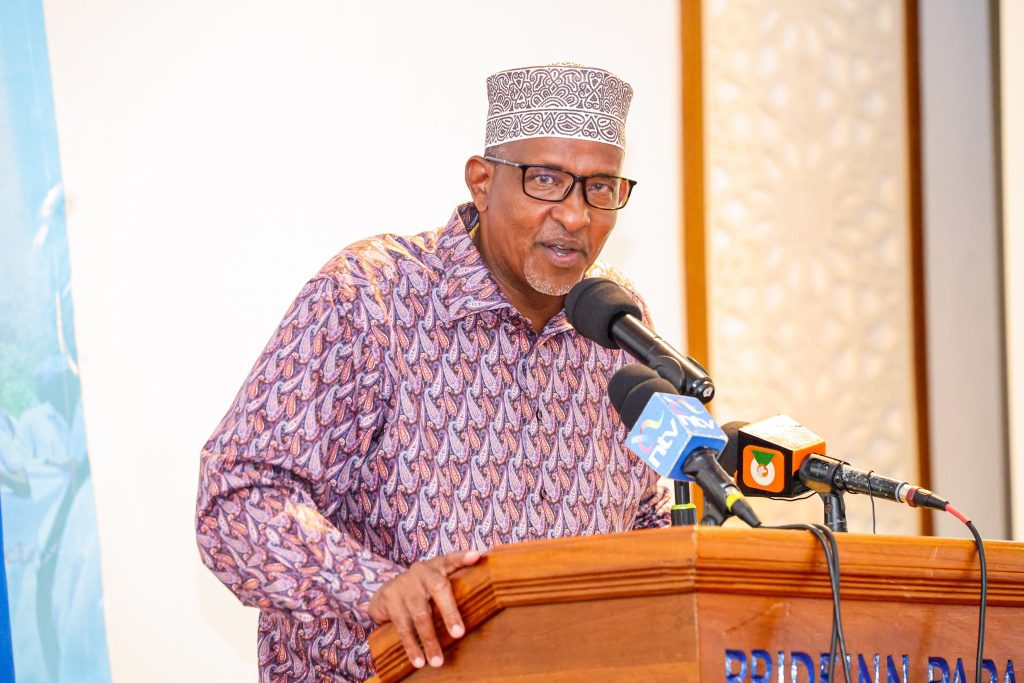Gospel star Guardian Angel has stunned fans with the revelation that his monthly bills exceed Ksh 1.5 million, shedding light on the high-flying lifestyle of one of Kenya’s most prominent musicians. In a candid podcast with media personality Alex Mwakideu, the Seven Heaven president detailed the financial demands of his Karen home, staff salaries, and other expenses, sparking widespread discussion about gospel music finances and celebrity wealth in Kenya. ” I have monthly bills of over KSh 1.5 million,” Gospel Star Guardian Angel said.
Guardian Angel, born Peter Omwaka, rose to fame with hits like Swadakta and Nimependa, establishing himself as a pillar in Kenya’s gospel music scene. His disclosure about monthly bills, which include rent for his upscale Karen residence and payments for his team, comes amid scrutiny over his efforts to nurture upcoming artists.
The singer addressed accusations of exploiting young talent, particularly referencing his fallout with artist Sammy G, clarifying that his mentorship was genuine despite public backlash. This revelation has fueled conversations on X about the costs of maintaining a celebrity lifestyle in Nairobi.
The KSh 1.5 million figure has raised eyebrows, with fans questioning how gospel music finances sustain such expenses. Guardian Angel explained that his income streams extend beyond music, including a burgeoning agribusiness venture started with his wife, Esther Musila.
The couple, often trolled for their age difference, has diversified into farming, acquiring land for produce and planning an entertainment venue to host shows featuring both established and upcoming artists.
This move aims to bypass promoters who, according to the Guardian, underpay artists, reflecting his strategic approach to wealth-building in Kenya’s entertainment industry.
" I have monthly bills of over ksh 1.5 million "- Gospel Star Guardian Angel! pic.twitter.com/WS0z1dSpeE
— The Kenyan Vigilante (@KenyanSays) August 13, 2025
Public reaction has been mixed, with some praising Guardian Angel’s transparency about his financial obligations, while others criticise the lavish spending as inconsistent with gospel values.
Posts on X highlight the debate, with one user noting, “Ksh 1.5 million monthly bills for a gospel artist? That’s more than most CEOs!” Others defend him, citing the high cost of living in Karen and the need to support a team.
The discussion underscores broader curiosity about how Kenyan celebrities manage wealth, especially in a genre often associated with modesty.
Guardian Angel’s comments also touched on personal resilience, stating he developed a thick skin to handle online trolling and false narratives, such as claims he built his home on his wife’s property.
He clarified that his financial success predates his marriage, driven by multiple hit songs and strategic investments. His upcoming establishment, described as a getaway with farm-fresh offerings, aims to create a platform for artists while generating additional revenue, further diversifying his gospel music finances.
The singer’s revelation about monthly bills has sparked curiosity about the economics of Kenya’s gospel industry. Unlike secular artists who often rely on endorsements, gospel musicians like Guardian Angel depend heavily on music sales, live performances, and side ventures.
His KSh 1.5 million monthly bills include operational costs for Seven Heaven, his music label, which supports emerging talent despite past controversies with artists like Sammy G.
As fans process Guardian Angel’s financial disclosures, the focus shifts to his upcoming projects. The planned entertainment venue could redefine how gospel artists engage with audiences, offering a space for performances and farm produce sales.
This venture aligns with his goal of financial independence, reducing reliance on external promoters and enhancing gospel music finances. The KSh 1.5 million monthly bills figure has also prompted discussions about transparency in Kenya’s entertainment sector.
By sharing such details, Guardian Angel challenges stereotypes about gospel artists, highlighting the business acumen required to sustain a high-profile career. His agribusiness and venue plans reflect a growing trend among Kenyan celebrities to diversify income streams.
In conclusion, Guardian Angel’s revelation about his monthly bills underscores the complexities of maintaining a celebrity lifestyle in Kenya. His openness about gospel music finances offers a rare glimpse into the industry, encouraging fans to rethink assumptions about wealth and success in the genre.
As the debate continues, Guardian Angel remains focused on his mission to uplift others while managing his substantial monthly bills. His story highlights the evolving landscape of gospel music finances, where talent, resilience, and diversification are key to thriving in Kenya’s competitive entertainment industry.















